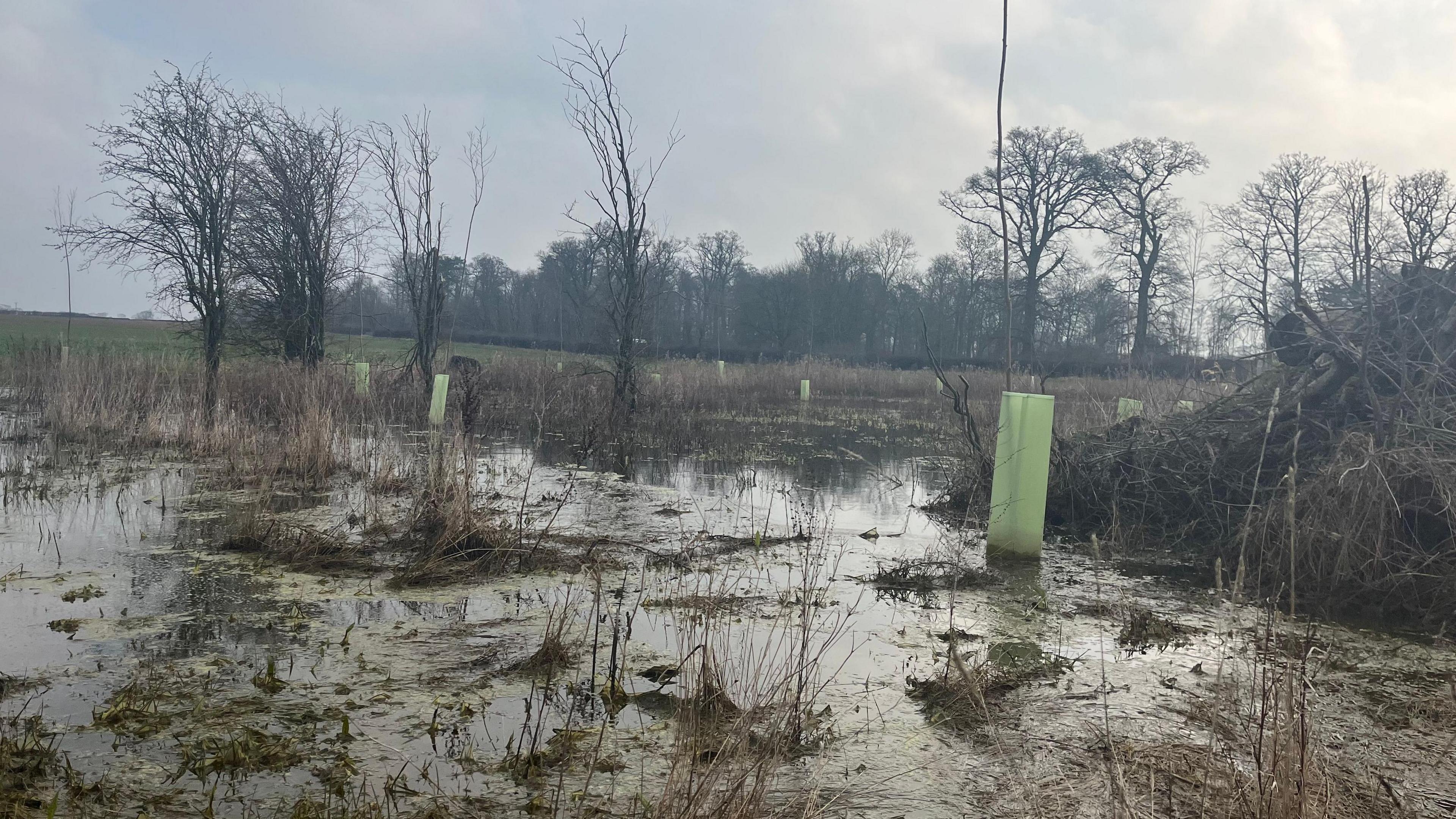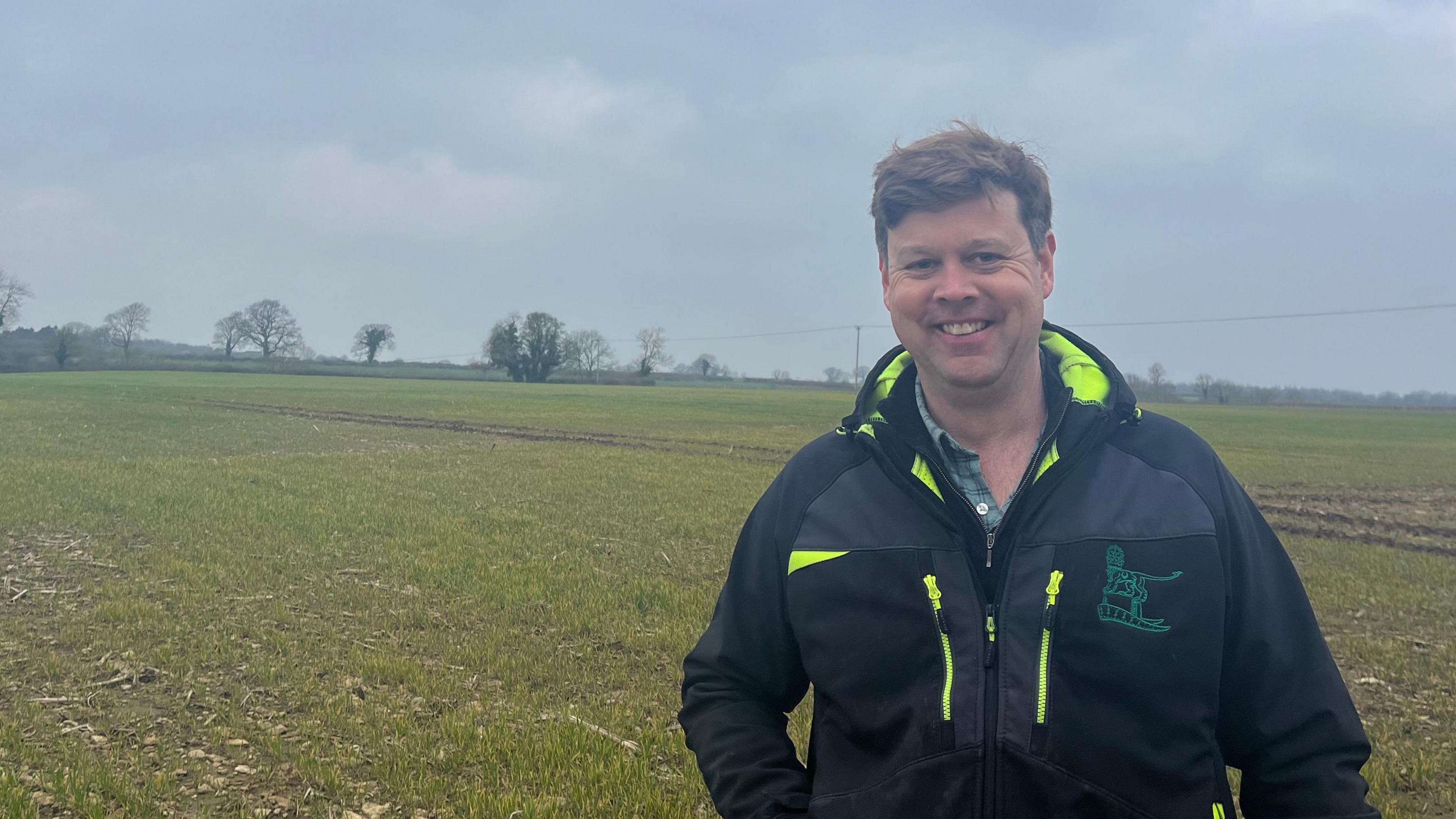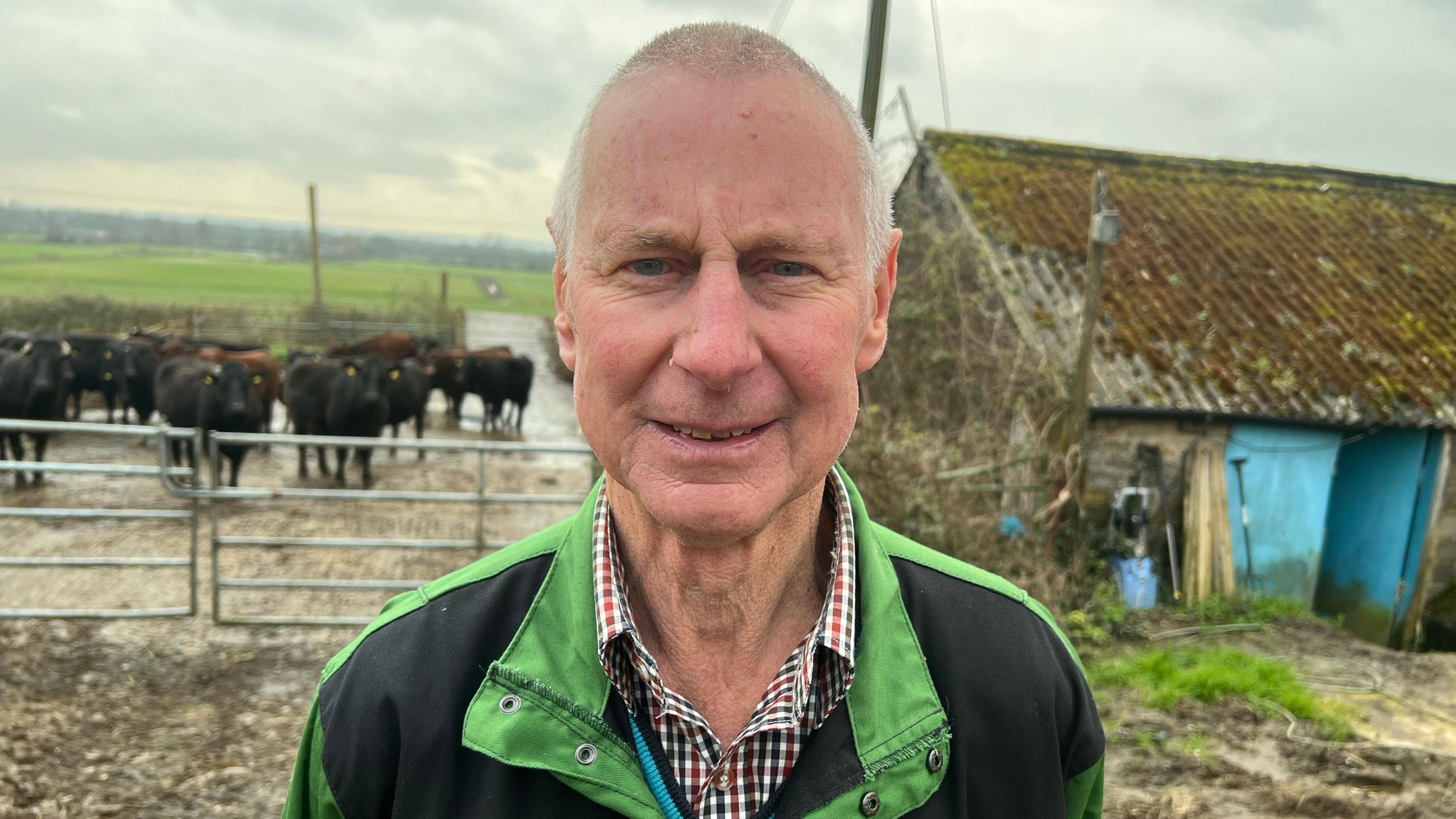Wet weather causes havoc for farming communities

Low lying farmland has been under water since early autumn
- Published
The wettest February since 1836 will lead to a "horrific" harvest, farmers have warned.
Many parts of southern England recorded more than twice the average rainfall.
Seeds which were planted in the autumn and January have simply rotted in the soil before germinating.
Farmer Robin Aird from Charlton Park in Malmesbury said: "It's horrific, if you have spent all your money on seeds which have failed, then you have to find that money again."
"We had a wet harvest last year and then anything planted after early October was impacted by the endless rain between then and Christmas," Mr Aird said.
"Last February was the driest we had seen, this February was the wettest.
"When winters are wet, crops won't put their roots down, so if we go into a dry summer then drought risk will be increased," he added.

Malmesbury farmer Robin Aird faces a difficult year because of the rain
Elsewhere, in Somerset, other farmers are also suffering.
Hugh Tucker runs Court Farm in Muchelney. At his 150 acre farm, around 80% of the land is flooded.
"This winter has been the worst I've ever known, and I've farmed here for 50 years," he said.
"Normally we wouldn't get it very badly at all.
"We're concerned about turning the cattle out now. The ground will be very soft, so we have to keep them in longer.
"Everything depends on the weather, we can't do anything until the conditions are right to work the land.
"It's terrible, it has been a great stress for us.
"The Environment Agency pumps we have were not adequate for the job," he said.

Hugh Tucker says the weather is the worst he's ever known
An Environment Agency spokesperson said: “We are aware that it has been one of the wettest winter periods on the Somerset Levels since records began and we have deployed temporary pumps across the Levels to supplement our permanent pumping station capacity and remove flood waters as quickly as possible when river levels allow.
"We work closely with farmers and can and do dredge watercourses where there is evidence it would be beneficial.”